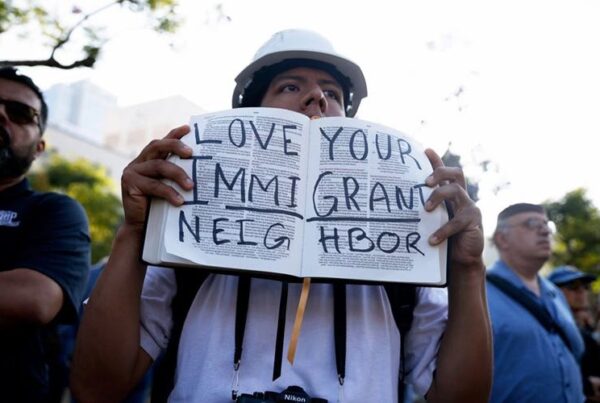Immigrant Made is a Chasing Justice series that focuses on mutuality with migrants by elevating the stories of immigrants and the generations that follow. In October 2023, Chasing Justice participated in an immersive border encounter with Abara, a nonprofit organization that builds connections through education and partnerships at the border between Juarez, Mexico and El Paso, Texas. There, we met a group of elders who shared their experiences growing up near the U.S.- Mexico border. This is part three of a three-part interview series including interviews with Elvira Garcia and Carmen Velia Estrada.

Salvador Salsierra (pictured above), who also volunteers with Abara, shares about crossing the border with ease and seeing the area change throughout the years:
Chasing Justice: What has been your experience seeing immigration between El Paso and Juarez?
Salvador Salsierra: Well, I have family from Mexico because my grandfather crossed over when there [were] no boundaries here. You just crossed the river and that’s it. He started working for the railroad also and opened up a little store.
We had family and we would go back and forth. Then, they started asking for IDs and all that. So, we had to declare our citizenship every time we crossed over. It was like “Why?”
And, my uncle used to work for immigration and he was at the bridge, you know. And he was the one asking for IDs and passports. He said “it’s a job for me.” I would ask him: “Uncle, why do you treat some people like this?”
“Well because they misbehaved. I just asked for their citizenship and they’d get mad.”
We would go across and it was totally different. A lot of poverty and people crossing over. In those days, they didn’t have a border wall. Even here, we used to come fishing and just walk across. We used to go swimming here and swim across.
My aunt used to live over here, so we would just walk across. We’d go to parties with family and walk across. We didn’t have to go all the way to the bridge or nothing. We’d just cross here. That was it.
I still remember when my aunt used to tell us “okay, we’re going to a birthday party so get your stuff ready” and we’d go across. Sometimes we had to walk across because there was water in the river and she would say “let’s go this way and then we’ll go down to the church.” Because the church is almost a mile downtown. And then we’d just come back and walk across again. We used to cross the bridge over there.
To me, it didn’t make a whole lot of difference. We wouldn’t think there’s a boundary [or] that we can’t go over there. Here, you could just walk across.
CJ: For you, what was it like growing up in El Paso near the border?
SS: For me, especially because my dad used to work for the railroad, we weren’t experiencing poverty like some other people in the same neighborhood. So, it wasn’t that bad. I had everything I needed for school. That’s why I’m one of the lucky ones. My family, we were a little bit better off than some people, and it’s mostly the people that grew up with me in that little neighborhood. We had everything we needed.
We grew up helping the people that were in need. Everybody helped each other out. That’s why, right now, we know a lot of people because we helped a lot of people as a group. We had a little club. There was a lady there that organized all the kids. She was our mentor and would help us out. My cousin, she was older than me, she had a little classroom next door and she bought a chalkboard. So we started speaking English earlier than some of the other kids, everybody that attended her little school.
All my friends and the people who grew up in poverty, now they’re lawyers and we’re so grateful, especially now that I’m retired from the school district, here in the state of Texas.
I started volunteering with Abara and it’s a whole new experience because I’ve met a lot of people from all walks of life. Especially with all the things that are happening here with the border. It’s a whole new perspective. We had it made. But there’s a lot of people here in the world where it’s really bad. Hopefully there’s people that are trying to make a difference.”
The views and opinions expressed on the Chasing Justice Blog are those of the authors and do not necessarily reflect the official policy or position of Chasing Justice. Any content provided by our bloggers or authors are of their opinion and are not intended to malign any religion, ethnic group, club, organization, company, individual or anyone or anything.








